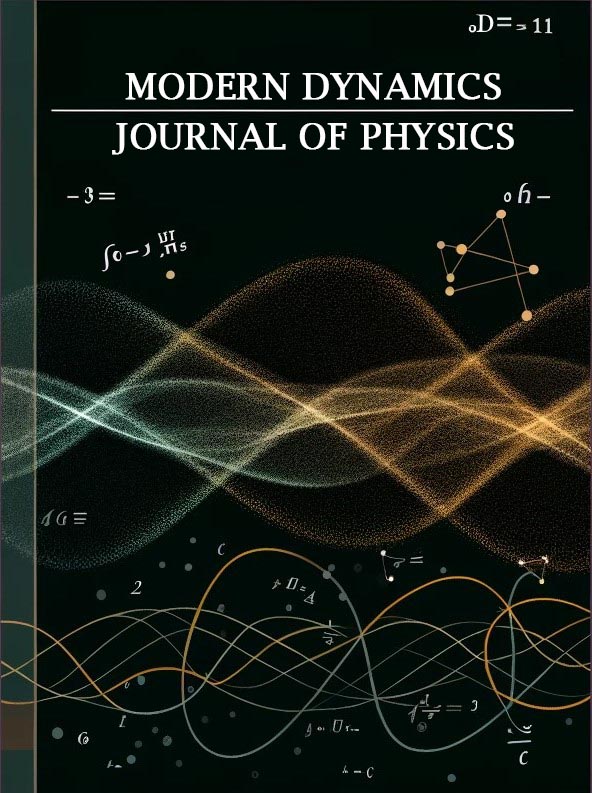ISSN: 3048-8265
Peer Review Policy
Modern Dynamics Journal of Physics is committed to ensuring the highest standards of scientific integrity and quality. The journal employs a rigorous and transparent peer review process to evaluate the validity, significance, and originality of submitted manuscripts. This policy outlines the peer review procedures and criteria used by the journal.
Types of Peer Review: The journal uses a double-blind peer review process, where both the reviewers and the authors remain anonymous to each other throughout the review process. This approach aims to eliminate any potential bias and ensure an objective evaluation of the manuscript.
Initial Manuscript Evaluation: Upon submission, each manuscript undergoes an initial evaluation by the editorial team to ensure it meets the journal's scope and basic submission requirements. Manuscripts that do not conform to the journal's guidelines or are deemed to be of insufficient quality may be rejected at this stage without being sent for peer review.
Selection of Reviewers: The editorial team selects reviewers based on their expertise, experience, and ability to provide a thorough and unbiased evaluation of the manuscript. Reviewers are typically researchers or professionals with recognized expertise in the relevant field of study.
Review Process:
• Assignment: Manuscripts that pass the initial evaluation are assigned to at least two independent reviewers for detailed evaluation.
• Evaluation Criteria: Reviewers assess the manuscript based on criteria including originality, significance, methodology, clarity of presentation, and relevance to the field of modern dynamics in physics.
• Reviewer Reports: Reviewers provide detailed reports with constructive feedback and recommendations. They may recommend one of the following actions: acceptance, minor revision, major revision, or rejection.
• Reviewer Confidentiality: Reviewers must treat the manuscript and its contents as confidential and must not use any information for personal advantage.
Decision Making: Based on the reviewers' reports and recommendations, the editorial team makes a decision regarding the manuscript. Possible decisions include:
• Accept: The manuscript is accepted for publication with no or minor revisions.
• Minor Revision: The authors are required to make minor changes as suggested by the reviewers.
• Major Revision: The authors are required to make significant changes and resubmit the revised manuscript for further review.
• Reject: The manuscript is rejected based on reviewers' recommendations or if it does not meet the journal's standards.
Revision and Resubmission: Authors who are asked to revise their manuscript must address all the reviewers' comments and submit a revised version within the specified timeframe. The revised manuscript may be sent back to the original reviewers or to new reviewers for further evaluation.
Final Decision: The editorial team makes the final decision on the manuscript based on the reviewers' feedback and the authors' revisions. The decision is communicated to the authors along with the reviewers' comments.
Appeals: Authors who believe that their manuscript was unfairly rejected may appeal the decision by contacting the editorial office with a detailed explanation of their concerns. Appeals are reviewed by the editorial team, and a final decision is made based on the merit of the case.
Ethical Considerations: The journal adheres to the highest ethical standards in publishing and expects reviewers and authors to comply with ethical guidelines, including those related to conflicts of interest, plagiarism, and research integrity.
